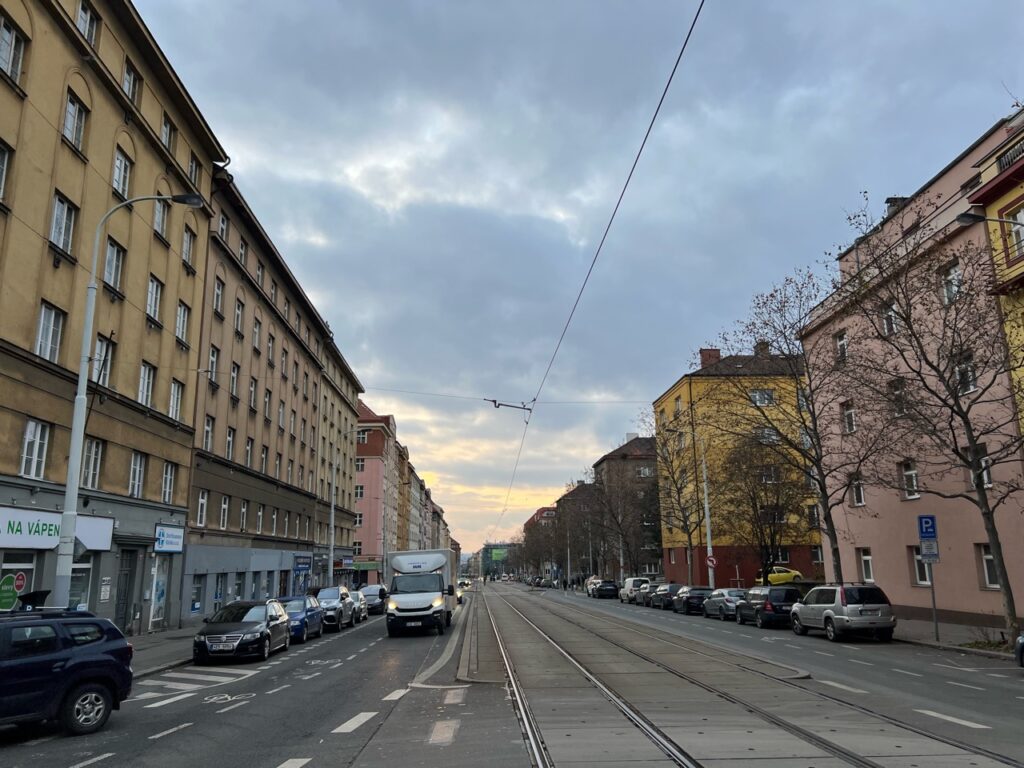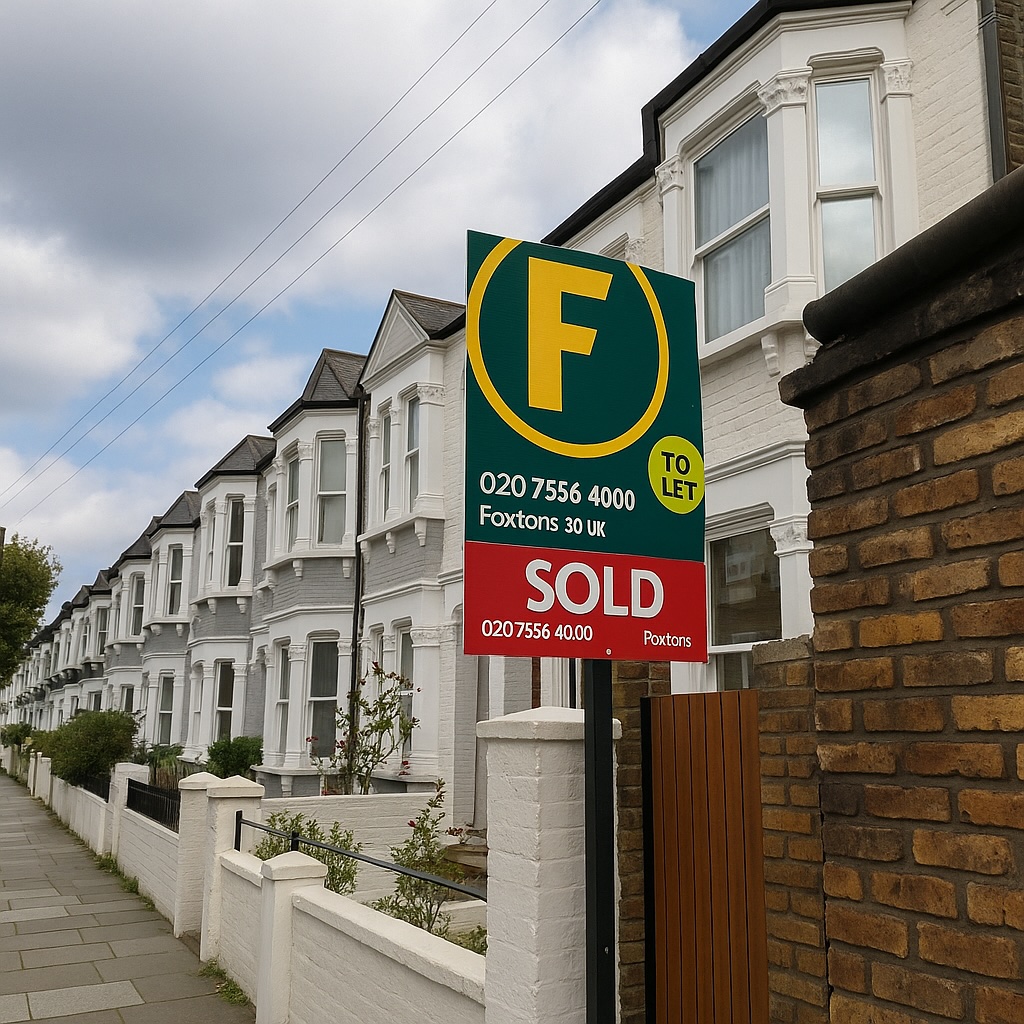(PRAGUE) – East of the Vltava river, tucked inside the middle class Zizkov neighborhood, lies Koněvova Street, a half-mile stretch of stone road named after a Soviet general. The general, Ivan Stepanovic Konev, was once revered, but his star has dimmed, prompting the Prague City Council to propose a name change for the street.
The proposal did not sit well with a number of residents, who now oppose the move.
The name change was intended to distance this part of the city from its Soviet past, a fresh wound now that Russian President (and former Soviet agent) Vladimir Putin, has ordered the invasion of Ukraine, which most Czech’s stand strongly against.
The Czech Republic (back then still as part of Czechoslovakia) was also a victim of Russian occupation in 1968, followed by strengthening of the authoritarian wing of the Communist Party. Because of this, Czechs share an affinity and closeness to Ukraine ,rooted in history, which goes well beyond compassion.
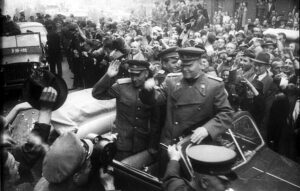
Koněv arriving in Prague after the city’s liberation from German troops in 1945. [Credit: Aktuálně.cz]
Residents balk at the plan
Some 4,980 people call the half-mile-long Koněvova Street their home. Through a registered letter sent to 3,689 houses, the district council explained t the residents that it had decided to change the street name as an act of solidarity in reaction to the Russian attack on Ukraine. It did not go over well with 71% of residents opposing the renaming in a letter to the council.
“Why bother with it now, if it wasn’t seen as important back then?” was among the most common replies.
The letter did not mention a word about Konev, which, as Ptacek later admitted, might have been the reason why people objected to its decision.
“Our primary goal at that point was to show absolute support for Ukraine,” Ptacek added.” And this was one of the ways we could have done that. We did not know that so many people would be against it.”
“It is not our war”
The recent demonstrations in Prague’s Wenceslas Square show that there are still a large number of Czechs who support Putin’s decision to invade Ukraine, as people are not afraid to show up wearing a picture of the president of Russia on their shirts or even waving the Russian flag.
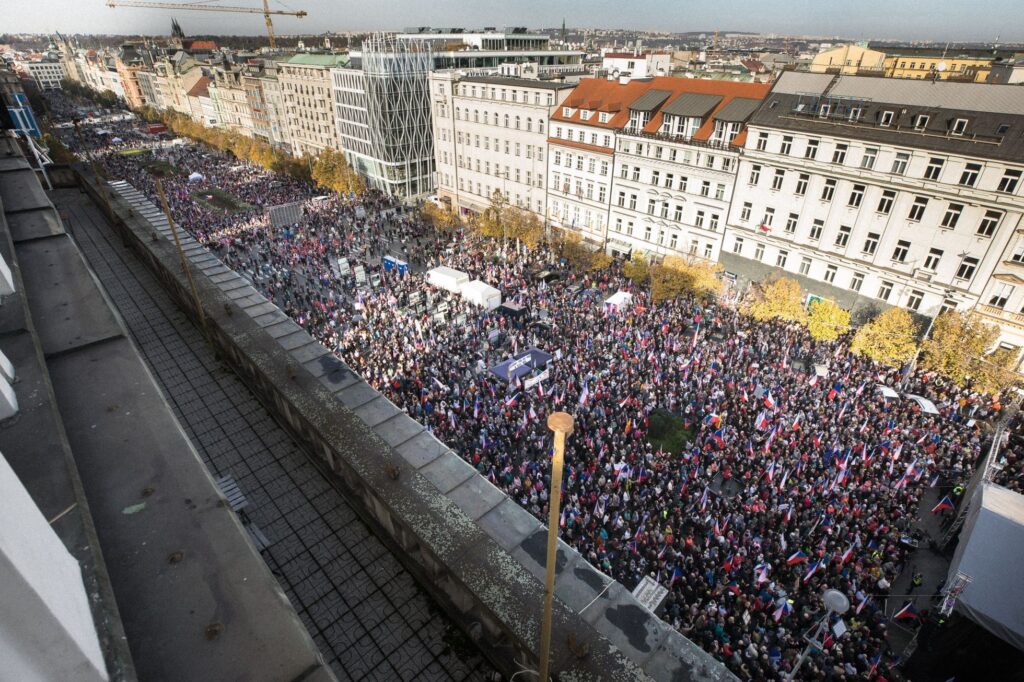
Every few weeks, thousands of people gather in Prague to protest Czech government and support Putin’s invasion. (Credit: Aktuálně.cz, Jakub Plíhal)
April research carried out by the Focus agency, which does regular social examinations in the Czech Republic, also shows that 60% of Czechs are afraid that helping Ukrainian refugees is too generous and will eventually be at their expense. Czechia has sent over $130,000 in military aid to Ukraine so far. In addition to that, Czechs have donated over $170,000 out of their own pockets.
Still, some disagree.
“It is not our war. I have three children that I need to take care of on my own, and the last thing I have time for is changing my address,” Ivana Trojanova, a Koněvova resident, told The Click.
The change would impose additional burdens on the residents of Koněvova Street. Within 15 days from the renaming of the street, people would have to sign up for free ID card exchanges, according to city hall spokesman Pavel Trojan. Aside from that, they also would have to change their mail subscriptions, insurance details, and other contacts. Pubs and other businesses would have to update their official paperwork , social media accounts and marketing materials.
“It is unnecessary and mainly just symbolic. Why change it after a quarter of a century?” said Petr Hajek, 33, an owner of a local barber shop. “What Ukraine needs right now are guns and humanitarian support. I cannot imagine what changing a street name will do.”
An attempt to “de-Putinize” the world
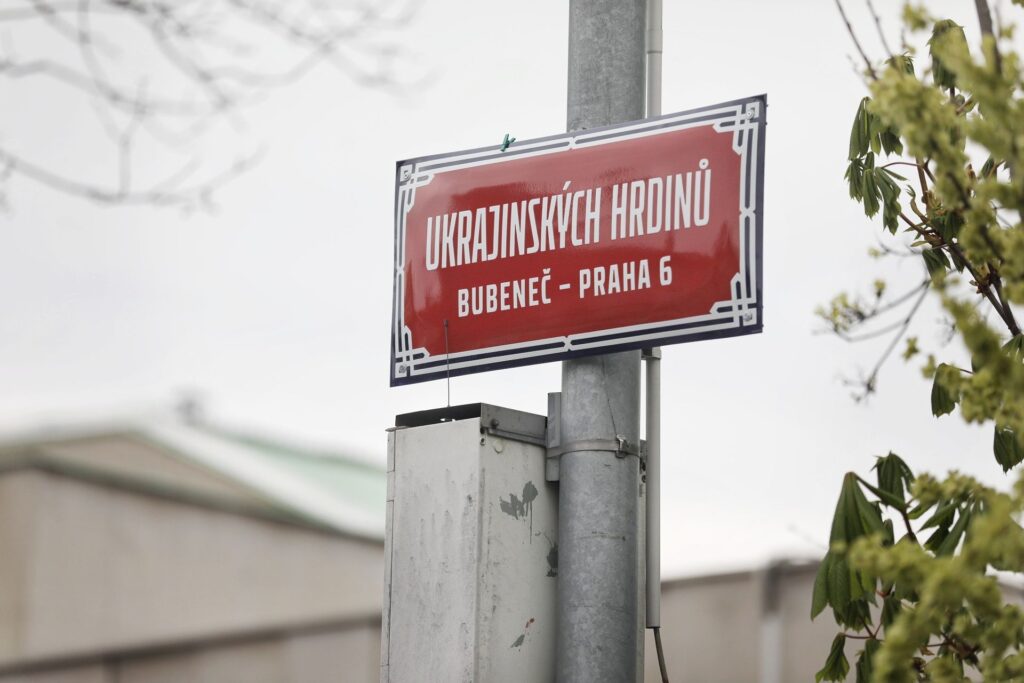
All letters sent to The Embassy of Russia in Prague now have to be addressed to the street of “Ukrainian Heroes.” [Credit: Aktuálně.cz, Jakub Plíhal]
However, residents pointed out that changing the name would just open a can of worms as many of the Hussite heroes whose names are on Žižkov streets were also responsible for questionable actions during and after the Hussite wars, including high casualties in battles and destruction of property. “They will change it and after a few years go by they will decide that they want to change it again because they don’t like someone else again. And where does it leave us?” asked Trojanova.
As Ledvinka said, the meanings of street names are not random. They reflect the local history and commemorate figures and events that are deemed to be important to the local community. Therefore, street names can be considered cultural markers of a town and its history and people can identify with them, especially if they have lived there for a long time.
“Street names are more than spatial indicators, and, since the beginning of time, rulers have used spatial engineering as a form of social engineering. As a result, street names mirror a city’s social, cultural, political, and even religious values,” a study in the Journal of Economic Geography found.
Street name of Russian embassy changed to “Ukrainian Heroes”
To that, Mayor Ptacek adds that values are important to stick to, especially in times like these. “Ever since the start of the invasion of Ukraine, the Czech government has supported the attacked nation continuously. The help we have done so far is both symbolic and practical. And sometimes, symbolic is just what the country needs.”
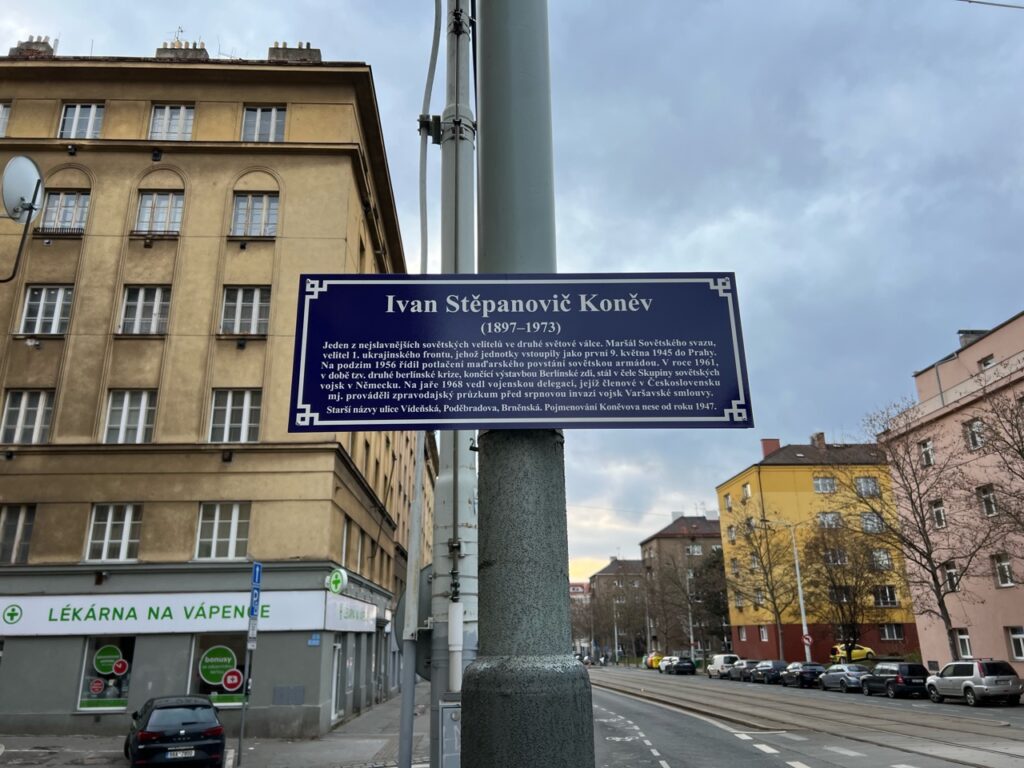
New signs were installed all over Prague’s Koněvova Street to show residents the truth behind Ivan Štěpanovič Koněv as an alternative to street name change. [Credit: Anna Dohnalova]
However, the controversy regarding Konev is more deeply rooted as the district council of Prague 3 already removed a statue of him from one of Prague’s squares on April 3, 2020.
The removal took place during a lockdown implemented by the Czech government due to the COVID-19 pandemic. Ondřej Kolář, the mayor of the local municipality Prague 6 and a member of the pro-European and liberal-conservative party TOP 09, ordered the statue’s removal due to Konev’s past and because the monument has long been an object of dispute.
For a long time, Kolar had been under police protection because of death threats he received after it. “I don’t regret my decision,”he said. “It was the right thing to do for this country as it is now.”
As a compromise with the residents who objected to the name change, the district council decided to not change the street name for now but installed new plaques around the roads explaining Konev’s complex role in Czechia’s history. They hope for residents to be more informed on the issue when they try to propose the idea again.
“Because changing the name of the street would be too complicated at the moment, we decided that at least, in the form of an additional sign. we would describe Koněv’s role in modern European history as succinctly as possible,” said municipal district councilor Pavel Křeček.
There is a new statue in Prague where Marshal Konev used to be. An imp tightening the gas cock. If he reminds you of Putin, you're right. We're collecting money from the people and sending weapons to Ukraine. Now we want to show our support before tomorrow's Armed Forces Day. pic.twitter.com/pqmnMBFeuE
— Dárek pro Putina (@DarPutinovi) December 5, 2022
On Dec. 5, the statue of Koněv was symbolically replaced by a statue of Vladimir Putin in the shape of a goblin-like figure, switching off a gas valve. According to the sculptor Daniel Dostal, the installation points out that Russia bears the blame for the energy crisis. The monument will remain installed in the district’s Interbrigade square for 30 days after which it will be auctioned off and the money donated to Ukraine.
